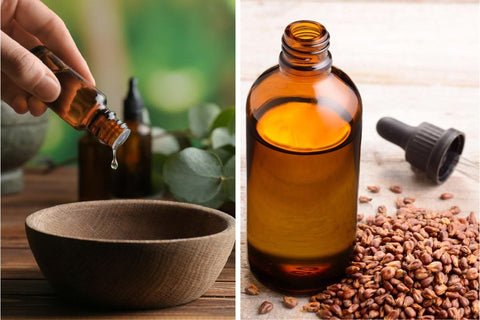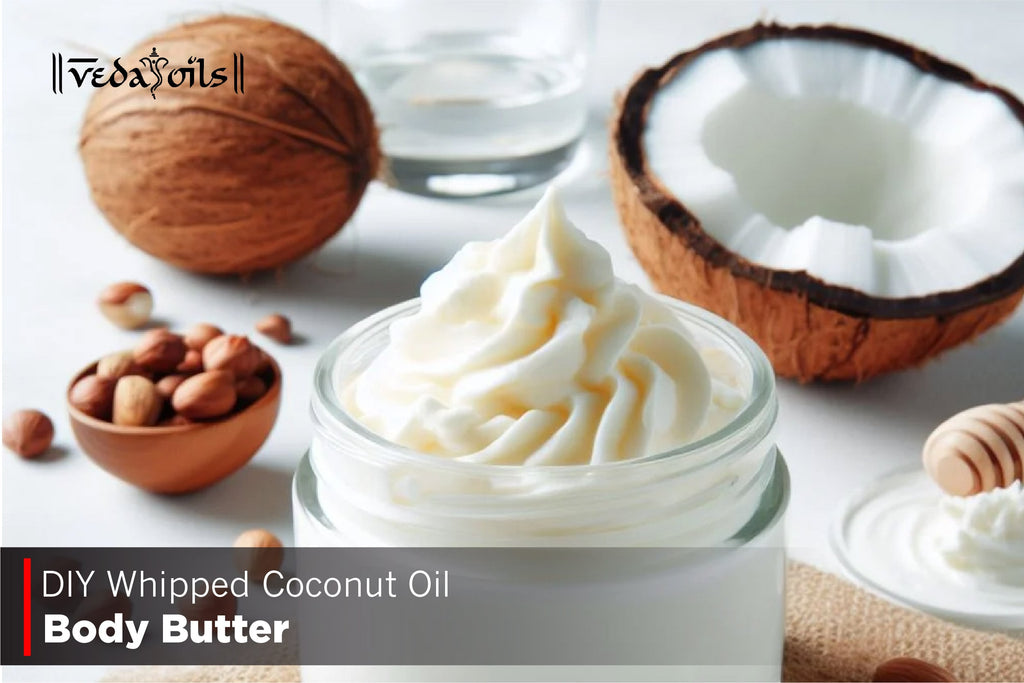Difference Between Essential Oils and Carrier Oils
Despite both being oils, they have quite different characteristics. Essential oils are highly concentrated, aromatic compounds extracted from various parts of plants through distillation or cold pressing. They contain the essence and characteristic fragrance of the plant, packed with natural compounds that offer therapeutic properties.

Essential oils have been used for centuries in aromatherapy, traditional medicine, and skincare for their diverse benefits. In this blog post, we will explore the world of carrier oils vs essential oils, highlighting their benefits and potential applications. Understanding the safe and effective use of these potent botanical extracts can empower individuals to harness the healing potential of nature's wonders.
What is an Essential Oil?
Essential oils are concentrated plant extracts, capturing their distinctive scents and therapeutic properties. They are obtained through methods like steam distillation or cold pressing and are widely used in aromatherapy and alternative medicine for promoting physical and emotional well-being.

What is Carrier Oil?
Carrier oils are plant-based oils, usually derived from nuts, seeds, or fruits, that act as a base or diluting agent for essential oils. They reduce essential oils' potency and enable safe skin application. Carrier oils also offer nourishing properties, making them suitable for massage and skincare.
Essential Oils Vs Carrier Oils
The primary difference lies in their composition and usage. Essential oils are highly concentrated and derived from various plant parts, carrying potent therapeutic benefits and intense aromas. On the other hand, carrier oils are less concentrated, extracted from nuts and seeds, and serve to dilute essential oils, making them safer for topical application.
1. Source and Extraction
When it comes to essential oils and carrier oils, understanding their source and extraction methods is crucial for harnessing their unique properties and benefits.
- Essential Oils: Essential oils are extracted from various parts of plants, including leaves, flowers, stems, roots, and fruits, using methods like steam distillation or cold pressing. They contain the concentrated essence of the plant and its aromatic compounds.

- Carrier Oils: Carrier oils are derived from nuts, seeds, or fruits of plants. They are obtained through methods like cold pressing and do not contain the same level of volatile aromatic compounds found in essential oils.
2. Concentration and Potency
In aromatherapy, essential and carrier oils differ in concentration and potency, influencing their therapeutic qualities and ideal uses for various health and beauty purposes.
- Essential Oils: Essential oils are highly concentrated, and only a few drops are usually needed for their therapeutic effects. Their potency makes them powerful, but requires careful usage to avoid adverse reactions.

- Carrier Oils: Carrier oils are much less concentrated than essential oils and have a milder scent. They serve as a base to dilute essential oils for safe topical application, allowing for a more significant surface area coverage.
3. Aromatic Properties
The aromatic properties of essential oils and carrier oils are key factors that distinguish their scents and therapeutic effects, making them valuable in diverse applications for overall well-being.
- Essential Oils: Essential oils are renowned for their intense and distinct aromas. Each essential oil carries a unique scent that contributes to its therapeutic benefits and plays a significant role in aromatherapy.

- Carrier Oils: Carrier oils have a much lighter and more neutral scent than essential oils. They do not typically contribute to the fragrance of the final product but instead help disperse the essential oil's aroma.
4. Therapeutic Properties
Essential and carrier oils offer distinct therapeutic properties that cater to different wellness needs, making them indispensable in natural remedies and holistic health practices.
- Essential Oils: Essential oils are valued for their wide range of therapeutic properties, such as antimicrobial, analgesic, calming, and energizing effects. These properties are responsible for their use in alternative medicine and aromatherapy.

- Carrier Oils: Carrier oils have beneficial properties, such as moisturizing, nourishing, and soothing the skin. They help in delivering essential oils to the skin and provide additional benefits on their own.
5. Safety and Application
Understanding the safety and appropriate application of essential and carrier oils is vital for maximizing their benefits while ensuring a safe and enjoyable experience in aromatherapy and skincare routines.
- Essential Oils: Due to their high concentration, essential oils should not be applied directly to the skin, as they may cause irritation or sensitization. Proper dilution with carrier oils is essential before topical application.

- Carrier Oils: Carrier oils are safe to apply directly to the skin and are commonly used as a massage or as a base for essential oil blends.
Conclusion
Essential oils and carrier oils complement each other in aromatherapy and skincare. While essential oils provide concentrated therapeutic properties and fragrance, carrier oils ensure safe application and enhance skin absorption. Understanding the distinction between these oils helps harness their combined potential for holistic well-being. To get high-quality essential and carrier oils in bulk at the best prices, visit us at www.VedaOils.com.
You May Also Like:
Buy Products
Related Articles
Disclaimer :- This article is intended for informational and educational purposes only and should not be considered a substitute for professional medical advice. For specific health concerns or treatment, please consult your personal physician. The article's editor, writer, and VedaOils organization do not assume any responsibility for any health outcomes resulting from the information provided. Readers are strongly encouraged to seek advice from their physician before acting on any recommendations made in these articles.

















 Sign in
Sign in Register now
Register now My Reward Points
My Reward Points









